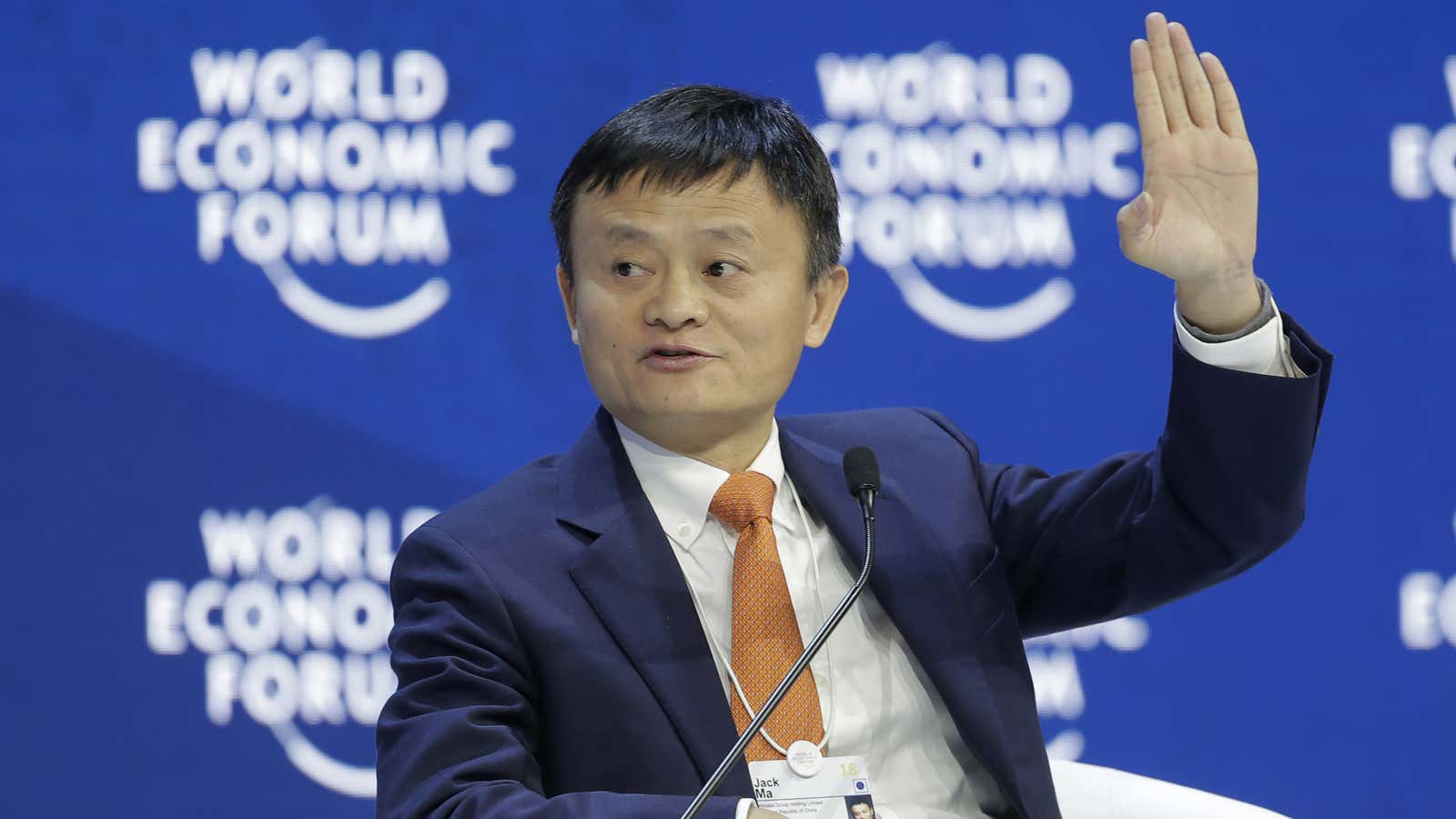Last week, Beijing faced a setback when the US Department of Commerce ordered American electronics companies to cease selling components to ZTE, a Shenzhen-based smartphone and network equipment company.
The ban, which came amid a broader tit-for-tat trade war between China and the US, has become a rallying cry for Chinese authorities to bolster their domestic semiconductor industry by relying less on overseas suppliers. One company joining the cause is e-commerce giant Alibaba.
Speaking at an event at Waseda University, Alibaba founder Jack Ma stressed how it’s important for China and other countries to develop core technologies themselves.
“America was the early mover and China, we need a lot of things. 100% of the market for chips is controlled by Americans,” he said, as reported by Bloomberg. “And suddenly if they stop selling—what that means, you understand. And that’s why China, Japan, and any country, you need core technologies.”
Ma’s company is putting its money where his mouth is. On April 20, just days after Washington issued its order against ZTE, Alibaba announced that it had acquired Hangzhou C-SKY Microsystems, a Chinese maker of embedded CPUs. Earlier, it revealed it was developing its own AI chip, dubbed Ali-NPU, with help from its DAMO research lab.
These forays into the semiconductor industry are not totally new for Alibaba. Over the past few years the group has made a handful of investments in chip companies from China and the US. It has either led or participated in the following deals:
- A $23 million investment Barefoot Networks, a Palo-Alto based chip maker that has also scored funding from Alphabet, Goldman Sachs, and Tencent
- A $100 million round for Shanghai-based Cambricon, makers of AI chips (paywall)
- A $40 million round for Beijing-based DeePhi Tech (via Ant Financial, Alibaba’s payments affiliate)
- A $10 million round in San Diego-based Kneron (via the Alibaba Entrepreneurs Fund)
- An investment of an undisclosed sum in Shanghai-based ASR Microelectronics
The core revenue driver for Alibaba remains ads and services on Taobao and Tmall, its two most popular e-commerce sites. But the company is also investing in hardware and artificial intelligence. Its fastest-growing business segment is its cloud-computing unit, which now has data centers in China, Malaysia, Germany, the US, and elsewhere. It also is making forays into self-driving cars and connected appliances.
Alibaba’s bets on chips pale in comparison to the tens of billions of dollars set aside for the China Integrated Circuit Industry Investment Fund, a state-backed fund established solely for China’s chip industry (paywall). Still, it shows how an influential, privately owned Chinese company will move in tandem with broader policy from Beijing.
